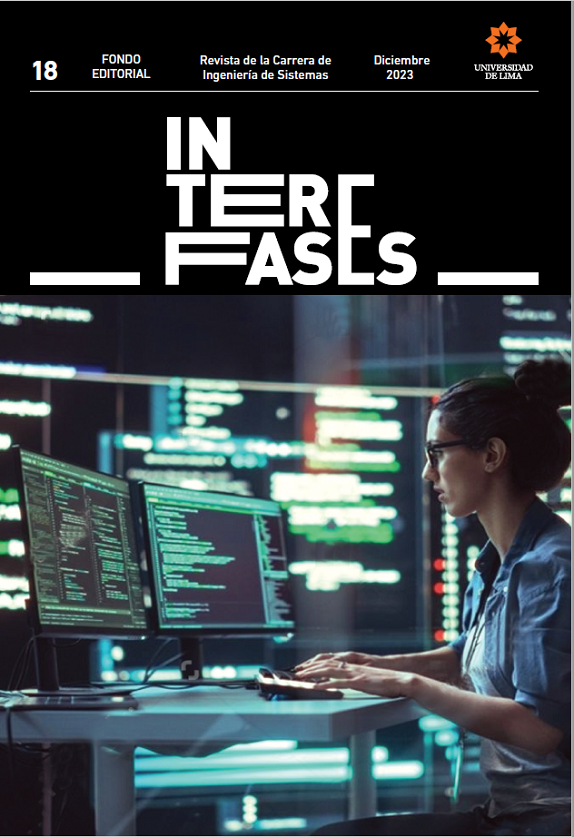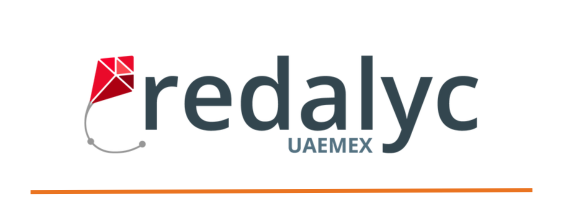“El lugar de una mujer está en la tecnología”: un análisis de perfiles brasileños de Instagram sobre mujeres en tecnología
DOI:
https://doi.org/10.26439/interfases2023.n018.6617Palabras clave:
mujeres, tecnología, redes socialesResumen
La disparidad en el número de mujeres y hombres que trabajan en campos STEM es un tema generalizado entre los investigadores de todo el mundo; sin embargo, dada su complejidad, siempre hay elementos para reflexionar y problematizar. Con esto en mente, este trabajo presenta un estudio que tuvo como objetivo analizar perfiles eños de Instagram sobre mujeres en tecnología utilizando los preceptos del análisis del discurso de Pêcheux, a partir de una encuesta realizada por la red ELLAS. Se encontró un total de 63 perfiles, y de ellos se eligieron 18 perfiles individuales para el análisis, en los que el foco fue enseñar cómo entrar y progresar en esta área.
Descargas
Referencias
Arndt, G. J., Miguel, R. de B. P., Michaelsen, M. V., & Barbosa, L. H. (2018). “Como uma garota”: novas regras na publicidade de absorventes. Estudos Feministas, 26(2). https://doi.org/10.1590/1806-9584-2018v26n245585
Arndt, G. J., Gonçalves, M. B., Miguel, R. de B. P., & Frigo, L. B. (em submissão). Mulheres em STEM: produções acadêmicas no contexto eiro.
Bacelar, A. S., Campos, A. C., Santos, L. T., Nascimento, T. B. P. do, & Rezende, D. C. de. (2021). Gênero e Construcionismo Social: Os Desafios das Mulheres na Tecnologia da Informação. Revista de Administração IMED, 11(1), 1. https://doi.org/10.18256/2237-7956.2021.v11i1.4364
Dess, C. (2022). Notas sobre o conceito de representatividade. Urdimento – Revista de Estudos em Artes Cênicas, 1(43), 1-30.
Dias, C. (2018). Análise do discurso digital: sujeito, espaço, memória e arquivo. Pontes.
Frade, R. L. (2021). Comunidades de mulheres em tecnologia: estudo comunicacional e organizacional. In Anais do XV Women in Information Technology (pp. 41-50). SBC.
Joly, M. (1996). Introdução à Análise da Imagem. Edições 70.
Karhawi, I. (2017). Influenciadores digitais: conceitos e práticas em discussão. Communicare, 17(12), 46-6.
Louzada, N., Santana, T., Assis, I., Braga, R., & Braga, A. (2019, July). Agindo sobre a diferença: atividades de empoderamento feminino em prol da permanência de mulheres em cursos de Tecnologia da Informação. In Anais do XIII Women in Information Technology (pp. 69-78). SBC.
Maciel, C., Guzman, I., Berardi, R., Caballero, B. B., Rodriguez, N., Frigo, L., Salgado, L., Jimenez, E., Bim, S. A., & Tapia, P. C. (2023). “Open Data Platform to Promote Gender Equality Policies in STEM.” In Proceedings of the Western Decision Sciences Institute (WDSI). Portland, Oregon, USA.
Mello, K., & Pedro, W. J. A. (2019). Gênero, ciência e tecnologia: as mulheres inventoras na
Universidade Federal de São Carlos. R. Tecnol. Soc., 15(36), 134-150.
Presidência da República do Brasil. (2017). Relatório Nacional Voluntário sobre os Objetivos de Desenvolvimento Sustentável.
Rocha-Coutinho, M. L. (1998). A análise do discurso em psicologia: algumas questões, problemas e limites. Em L. Souza, M. F. Q. Freitas, & M. M. P. Rodrigues (Orgs.), Psicologia: reflexões (im)pertinentes (pp. 317-345). Casa do Psicólogo.
Scott, J. (1995). Gênero: uma categoria útil de análise histórica. Educação & Realidade, 20(2), 71-99.
Vinuto, J. (2014). A amostragem em bola de neve na pesquisa qualitativa: um debate em aberto. Temáticas, 22(44), 203-220.
World Economic Forum (2018). Global Gender Gap Report. Insight Report.
Descargas
Publicado
Número
Sección
Licencia
Los autores/as que publiquen en esta revista aceptan las siguientes condiciones:
Los autores/as conservan los derechos de autor y ceden a la revista el derecho de la primera publicación, con el trabajo registrado con la licencia de atribución de Creative Commons, que permite a terceros utilizar lo publicado siempre que mencionen la autoría del trabajo y a la primera publicación en esta revista.
Los autores/as pueden realizar otros acuerdos contractuales independientes y adicionales para la distribución no exclusiva de la versión del artículo publicado en esta revista (p. ej., incluirlo en un repositorio institucional o publicarlo en un libro) siempre que indiquen claramente que el trabajo se publicó por primera vez en esta revista.
Se permite y recomienda a los autores/as a publicar su trabajo en Internet (por ejemplo en páginas institucionales o personales) antes y durante el proceso de revisión y publicación, ya que puede conducir a intercambios productivos y a una mayor y más rápida difusión del trabajo publicado (vea The Effect of Open Access).
Última actualización: 03/05/21






